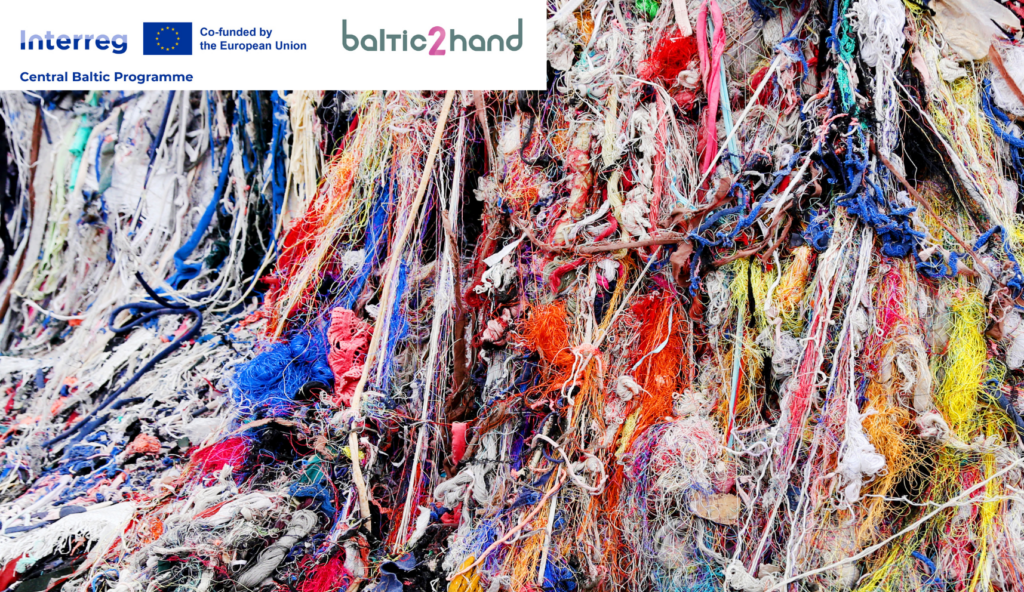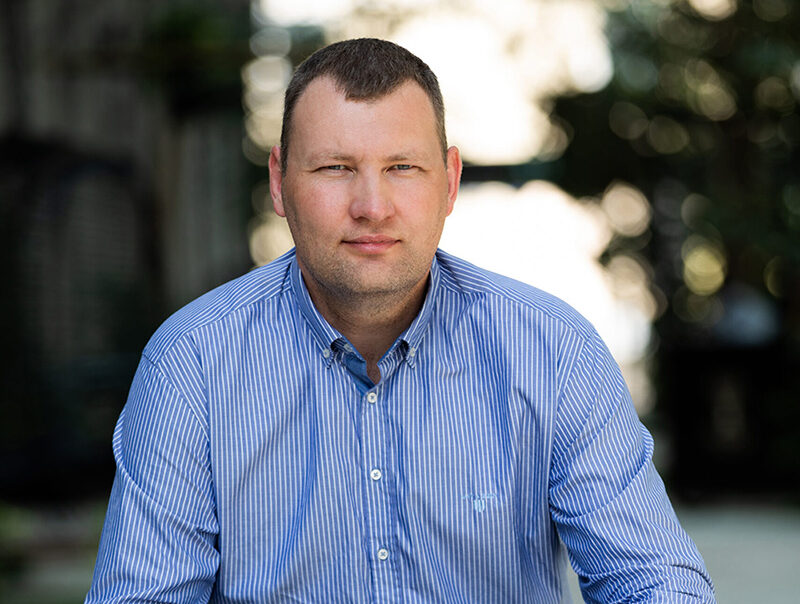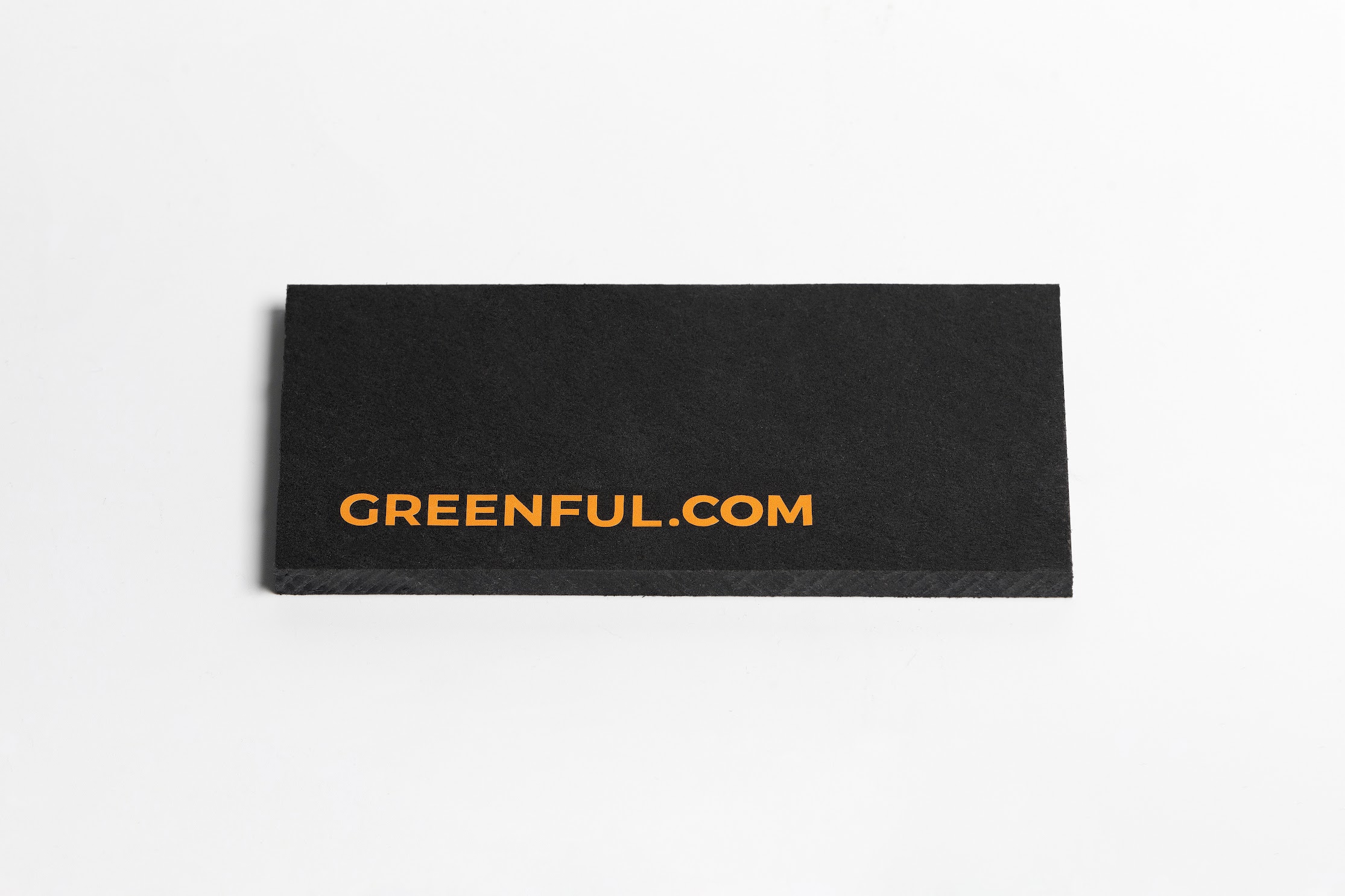Greenful Journey: Crafting a Greener Future from Textile Waste

In the context of the BALTIC2HAND project, Tallinn Business Incubator organized a webinar, where Toomas Allikas, who has led Greenful Group as CEO, recounted the company’s journey, and dived into the staggering figures of global textile waste problem.

As an introduction, Toomas Allikas painted a vivid picture of the crisis “There are 92 million tonnes of textile waste produced worldwide with approximately 12 million tons in Europe. One garbage truck of textile waste is landfilled or incinerated every single second.” The magnitude of the problem is staggering. It’s estimated that fast fashion will increase by 300% in the next three years, which adds fuel to the problem. Currently, only around 1% of textile waste is recycled, with projections of maybe reaching 10% in the future. While extended producer responsibility is on the horizon, its impact remains indirect.
Greenful is a company that offers a practical solution to the issue of recycling textile waste. They produce a range of eco-friendly products using textile waste such as wall panels, decorative boards, structural insulated panels, and paving bricks. To provide a visual perspective – one Greenful factory covers 30,000 square meters, employs nearly 100 individuals, and requires 35,000 tons of textile waste annually.
One piece of advice that changed how the idea for Greenful was born, was advice given to Toomas from one mentor: “If you want to succeed in the waste recycling business, you have to remember one rule. Start your business at the size where tomorrow your problem is also a government problem.”
The mission of Greenful Group was grounded in transformative ambitions. Toomas emphasized the company’s strategy for tackling this waste by stating, “It entails finding large-scale solutions with a standardized business model that can be implemented across Europe simultaneously.” He was candid about the scale of the challenge, acknowledging that “to solve European 5.2 million ton of textile waste problem, it would take 148 Greenful factories.” But he also offered a realistic strategy, suggesting, “But if governments in Europe would just pick approximately 20 impactful solutions and then would completely finance them, it would take like 7 factories from each solution to solve the textile waste in Europe within five years.”
The principles behind Greenful Group’s products were clear and non-negotiable. Toomas declared, “Number one, they all must be made from recycled waste. Not a single polluting chemical will be used in our panels and all the materials are recyclable at the end of life. So that’s the three rules of everything.”
Their flagship product, the Greenful panel, was a testament to these standards, offering a sustainable alternative to traditional materials, described by Toomas as “100% recyclable and load-bearing construction material that can be used inside, outside, underwater, wherever. It’s stronger than plywood.” Addressing the innovations and future plans, Toomas revealed, “Currently we are working on the large construction blocks – we call them lego blocks made from mixed plastic waste. We have roof tiles, paving bricks, sound insulation panels are coming soon and many other innovations are on the way.”

The Greenful Group’s commitment to the environment was evident as Toomas highlighted their impact: “Every cubic meter of Greenful panel sold saves 353kg of CO2 from the environment.” He was proud to showcase Greenful’s latest innovation, the Greenful Zip panel, “which should be one of the first construction materials that completely meets the EU green requirements.”
Allikas didn’t shy away from discussing the business challenges, including the importance of selecting the right partners and the complex landscape of fundraising. Greenful Group had overcome these by attracting multinational clients, indicative of a significant market interest in sustainable materials. Allikas shared his experience in seeking partnerships, noting that “from over 50 requests I sent, only three decided to proceed with us and only one partner succeeded.” This highlighted the resilience needed to innovate in this space.
For starting start-ups and young entrepreneurs in the circular sector he recommended participating at different accelerators and incubators: “You need publicity to be heard, so participate at contests, and incubators and be visible.” The other thing to remember is that most brands do not want to be sustainable. “They just lose money with that and even if you have the best solution and you are so excited. But they will reject you many times. So just keep on going. It is challenging but it’s interesting.”
Through his presentation, Toomas Allikas delivered more than just an account of Greenful Group’s journey; he offered a narrative of innovation and resilience. He impressed upon his audience the necessity for large-scale solutions to effectively tackle Europe’s monumental textile waste problem. Allikas concluded, “It’s pure mathematics, yes, it takes large-scale facilities, but it is completely doable.” This statement, along with the detailed account of Greenful’s strategies and philosophies, underscored the urgency of a collective response to the textile waste problem – a sentiment that permeated throughout his inspiring call to action.
The webinar was organized by Tallinn Business Incubator in the context of the BALTI2HAND project. The project is funded by an Interreg Central Baltic Programme 2021-2027 project that is co-funded by the European Union. Partners in the project: Tallinn Creative Incubator, Laurea University of Applied Sciences, Latvian Chamber of Commerce and Industry, Turku University of Applied Sciences, Sustainability InnoCenter.